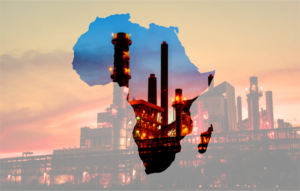African Nations Scramble to Re-Negotiate Trump’s Tariffs Amid Fears of Economic Fallout
President Donald Trump’s sweeping new tariffs have officially taken effect against dozens of countries, including several in Africa, sparking urgent calls for negotiation as governments brace for economic pain.
The tariff hikes, announced earlier this year and implemented Thursday, target a wide range of imports and come at a time when the U.S. economy itself is showing signs of strain from months of escalating trade tensions. While the White House insists the measures are necessary to protect American industries, leaders in Africa warn the move could trigger job losses and stifle fragile economies still recovering from the global downturn.
South Africa, the continent’s most diversified economy, has been hit with steep 30% tariffs on key exports to the United States, including goods from its automotive, agricultural, and manufacturing sectors.
President Cyril Ramaphosa confirmed that he spoke with Trump on Wednesday, just two days before the tariffs took effect. In a statement, Ramaphosa’s office said both leaders “undertook to continue with further engagements,” signaling an openness to continued dialogue.
Pretoria insists it can still negotiate more favorable terms, despite Trump’s sharp criticism of the country’s domestic policies. The U.S. administration has also halted certain forms of aid to South Africa, citing what it alleges are “anti-white and anti-American policies” — accusations South African officials strongly reject.
The tariff shock is not limited to South Africa. Its neighbors, Botswana and Lesotho, also face heavy trade penalties and are scrambling for relief.
Lesotho, a tiny mountainous kingdom whose economy relies heavily on textile manufacturing, was initially threatened with a 50% tariff on its clothing exports — a sector that produces for major international brands like Levi’s. Following appeals, the rate was reduced to 15%, but industry leaders warn that even this level threatens thousands of jobs and dozens of small and medium-sized businesses.
Botswana, similarly dependent on exports of manufactured and processed goods, is also lobbying Washington for more lenient trade terms.
The new tariffs undermine years of progress under the African Growth and Opportunity Act (AGOA), which had granted many African nations duty-free access to U.S. markets. With AGOA set to expire in September 2025, the tariff hikes have cast doubt on its future and prompted African governments to explore alternative markets in Europe, Asia, and within the African Continental Free Trade Area (AfCFTA).
Economists warn that without concessions, the new trade barriers could deepen unemployment in countries already grappling with jobless rates above 30%, weaken export-driven industries, and push smaller economies toward recession.
For now, African leaders are walking a fine line — voicing strong opposition to the tariffs while keeping channels open for negotiation in hopes that diplomacy, rather than a prolonged trade fight, will prevail.









